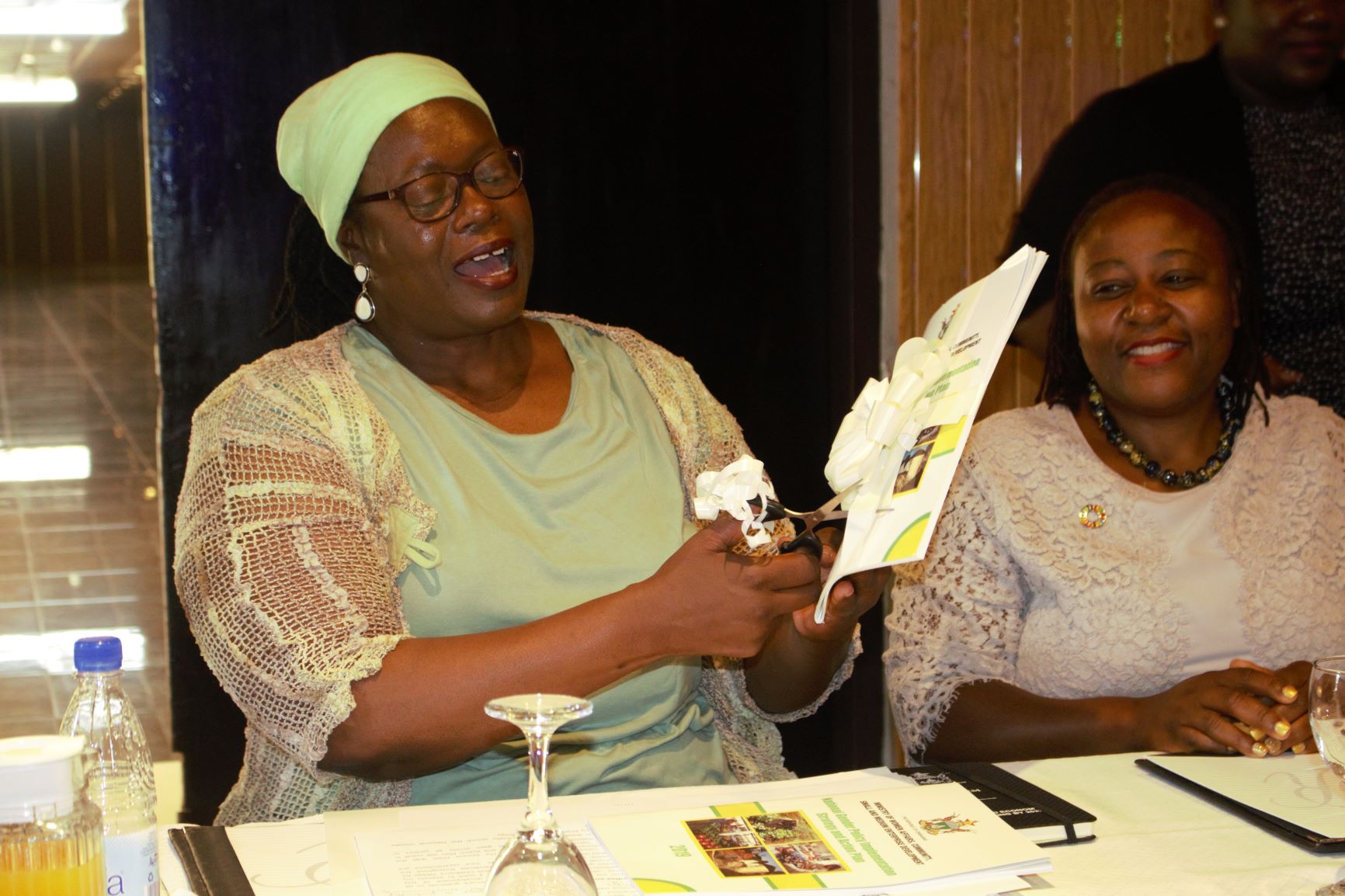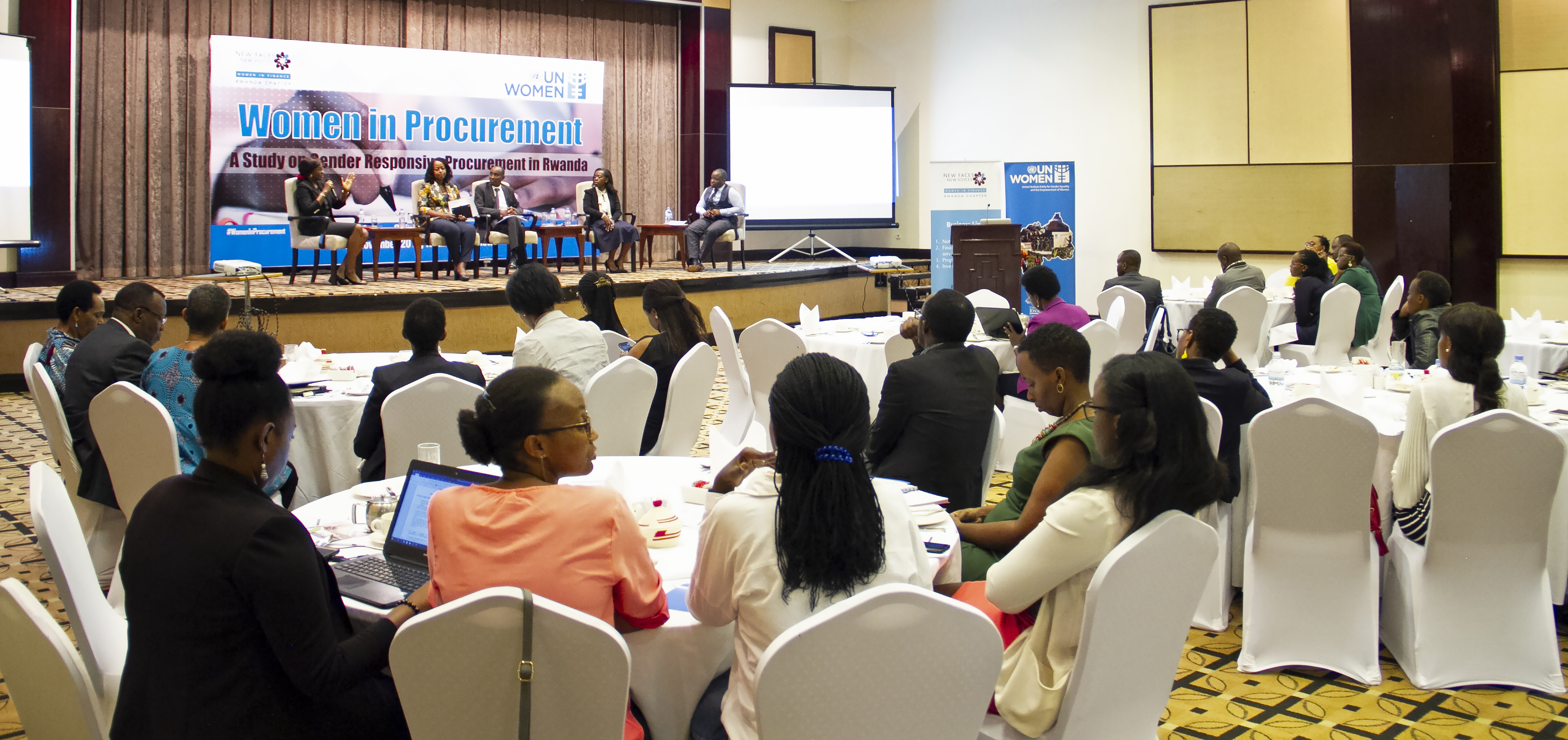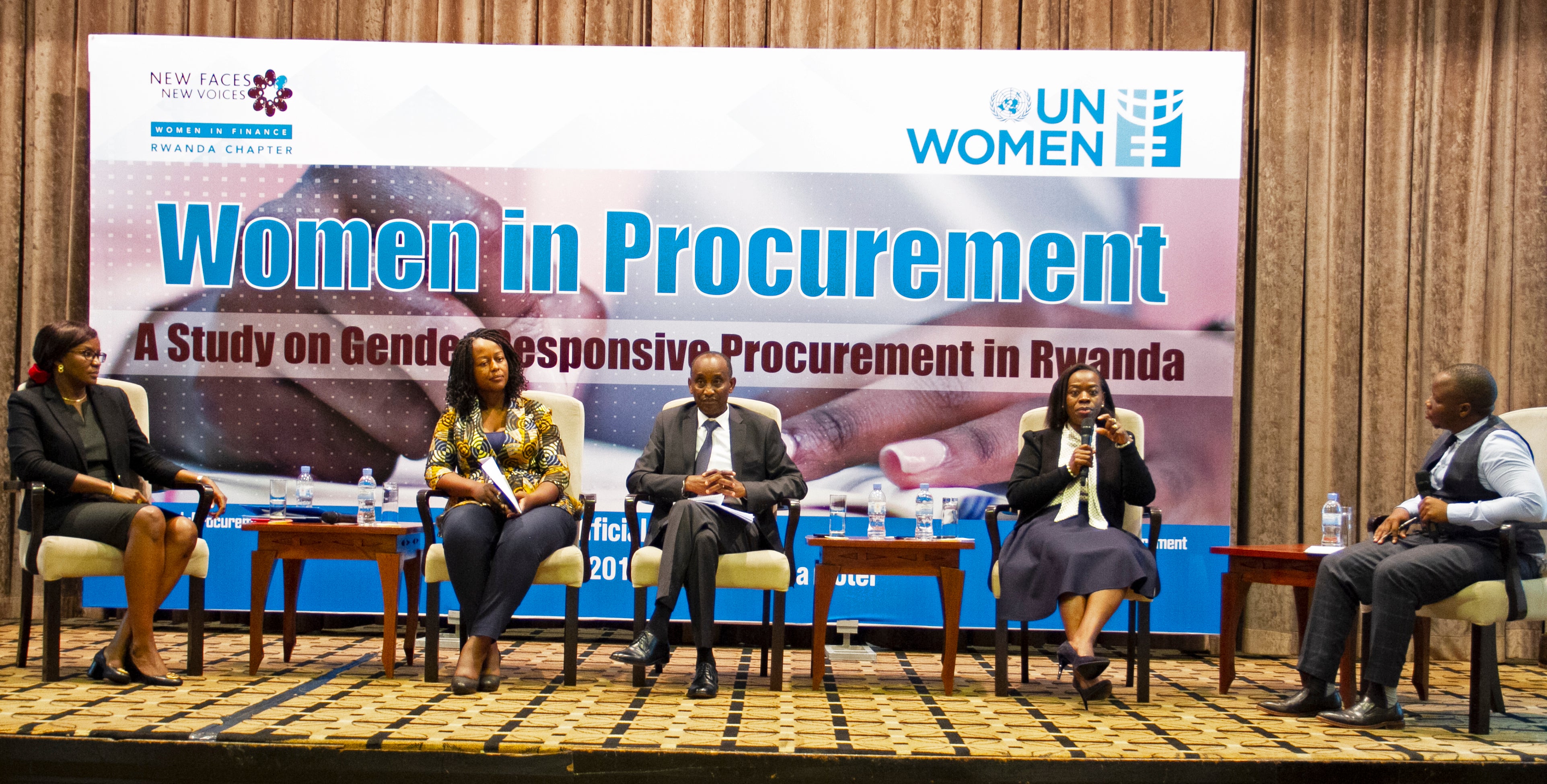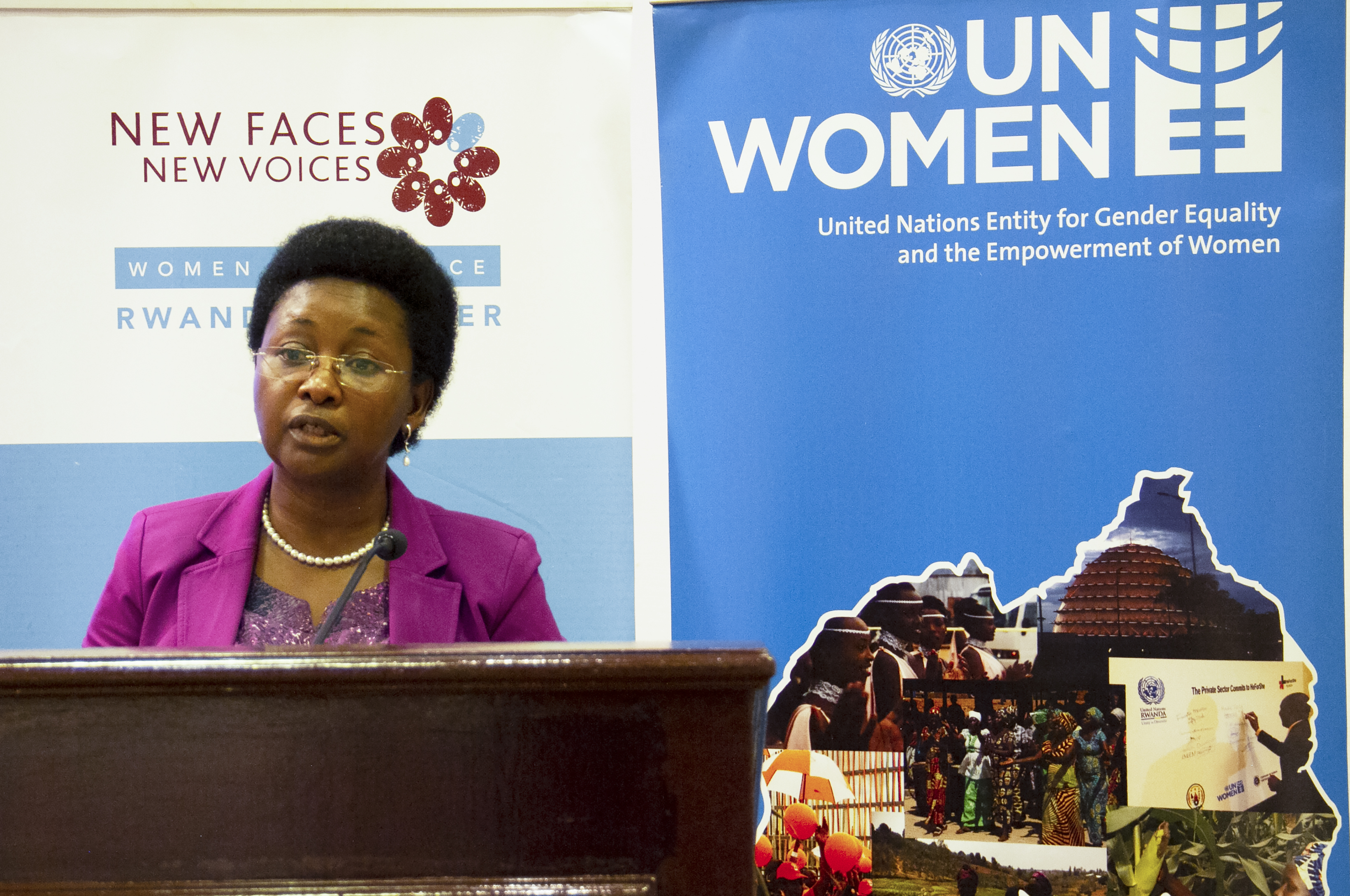New Report calls for deliberate and bold measures to enhance gender responsive procurement in Rwanda
Date:

Kigali, Rwanda: The United Nations Entity for Gender Equality (UN Women) and New Faces New Voices Rwanda today launched the Women in Procurement Report: A study on Gender-Responsive Public Procurement in Rwanda.
The study, which was commissioned to analyze the procurement policies applied, understand the capacities and constraints of women-owned enterprises and propose concrete measures for Gender-Responsive public procurement in Rwanda, noted that despite a range of commendable initiatives towards the advancement of gender equality and women’s empowerment in the country, women-owned businesses find themselves largely excluded in public procurement processes.
In her opening remarks, UN Women Country Representative, Ms. Fatou Lo, noted that public procurement alone accounts around 15 to 30 per cent of GDP in many countries globally, hence it is critical to create an enabling environment for women owned businesses to grow and thrive. ‘‘One way to encourage entrepreneurship is to stimulate demand for goods and services supplied by women-owned businesses. Procuring entities such as governments, corporations and international organizations stand to benefit from diverse supplier bases, which foster productivity and innovation and guard against shocks,’’ said Ms. Fatou Lo.
 Panel discussion at the launch of the study report. Photo: UN Women/Tumaini Ochieng
Panel discussion at the launch of the study report. Photo: UN Women/Tumaini Ochieng
Based on various indicators, the study reveals that out of the 332 won tenders selected for this study between 2016 and 2019, women-owned businesses won only 43 tenders which represents 13 per cent of the selected tenders. In monetary value, the total value of tenders won by women owned businesses represent 5% of the total value of the selected tenders. Moreover, women-owned businesses mainly won soft tenders such as supply of services, refreshments, event management and supply of office furniture, while men-owned businesses dominated in big tenders such as constructions and supply of agricultural inputs.
The study points to a number of barriers and challenges that hinder women-owned businesses to participate in public tenders. These include: lack of financial, social and human capital, hefty bid security and long experience especially for start-ups, limited knowledge about procurement processes, exposure to sexual advances by some procurement officers as a pre-condition for awarding contracts as well as limited access to market information and ICT.
In responding to further steps towards achieving gender equitable economic development. Dr Monique Nsanzabaganwa, Chairperson of New Faces New Voices said ‘‘at New Faces New Voices we are bridging the gap between financial institutions and women doing businesses in informal and formal sector, we understand the needs of women and what financial institutions are offering"
 From left: Ms. Fatou Lo (UN Women), Jeanne Francoise Mubiligi (RWCE), Augustin Seminega (MINECOFIN/RPPA) and Dr Monique Nsanzabaganwa (NFNV) in a panel discussion moderated by Arnold Kwızera (CNBC Africa). Photo: UN Women/Tumaini Ochieng
From left: Ms. Fatou Lo (UN Women), Jeanne Francoise Mubiligi (RWCE), Augustin Seminega (MINECOFIN/RPPA) and Dr Monique Nsanzabaganwa (NFNV) in a panel discussion moderated by Arnold Kwızera (CNBC Africa). Photo: UN Women/Tumaini OchiengThrough solid, in-depth analysis and data, this evidence-based report provides key recommendations for actions that governments and others can take in order to render Rwanda’s public procurement system more gender-responsive. These includes awareness raising on opportunities offered by governing laws on procurement, capitalizing on Rwanda’s Community Approach to engage women organizations such as cooperatives to engage and benefit from public procurement at local level, sensitizing women entrepreneurs to participate in work-related bids such as through Joint-ventures, and designing interventions for women entrepreneurs to enhance their capacities in areas such as financial management, tax processes, procurement processes, use of e-procurement and other ICT facilities, among others.
This study, was proposed not only to document major challenges faced by Rwandan women owned-businesses in engaging in public procurement processes, but also to highlight areas that require policy dialogue and potential refinements to render Rwanda’s public procurement system more gender-responsive.
In her closing remarks, Hon. Solina Nyirahabimana, Minister of Gender and Family Promotion in Rwanda called and committed to deliberate, intentional and bold actions in empowering women and girls entrepreneurs. ‘‘We need to draw a strong call for action now going forward. These evidence based findings in gender responsive public procurement requires us to collectively take bold action towards improving women owned businesses to successfully compete in public tenders,’’ noted Hon. Solina Nyirahabimana.
 Hon. Solina Nyirahabimana, Minister of Gender and Family Promotion in Rwanda. Photo: UN Women/Tumaini Ochieng
Hon. Solina Nyirahabimana, Minister of Gender and Family Promotion in Rwanda. Photo: UN Women/Tumaini Ochieng